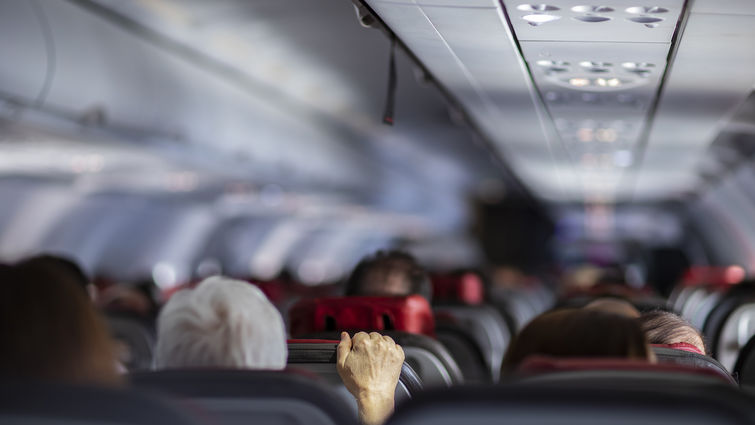
Travel
Page last updated: March 18, 2020.
Due to the fluid COVID situation, the CDC is encouraging individuals, especially students, to reevaluate their travel plans. Visit the CDC travel page for the latest news on travel warnings, restrictions and country information.
Positive cases of novel coronavirus — or COVID-19 — have been spreading around the country and the globe. With the virus dominating the news and many conversations, one question seems to remain at the forefront: should you cancel your travel plans?
The concern many travelers feel for their safety is important, says Adrian Cotton, MD, chief of medical operations at Loma Linda University Health. “We don’t know everything about COVID-19, but we do know what people can do to mitigate the spread of viruses as they visit new places,” he says.
The virus has been spreading quickly, and many conferences, tourist sites and other popular events worldwide have been canceled. Cotton recommends arming yourself with information to fight the spread of both disease and panic. Before you start your spring break, remember these five travel tips to limit the spread of disease:
Wash your hands and don’t touch your face
It’s been the central message of prevention, and it remains the best thing healthcare providers say you can do to avoid the disease. Respiratory viruses enter the body through mucosal membranes, which are thin tissue that line the nose, oral cavity and lips.
“Without proper hygiene, it’s easy to pass a viral infection from your hands to your face,” Cotton says. He recommends taking necessary measures to clean your hands — at least 20 seconds with soap and water — and keep your hands away from your face.
Use a credit or debit card instead of exchanging cash
The World Health Organization (WHO) recommends washing your hands after handling money, especially before touching your face or eating food. Money could carry viruses if one or more handlers passed droplets to the bill. “Consider using antibacterial wipes to clean credit cards,” Cotton says.
If you need to use cash for a trip, wash your hands afterward. Since the virus is droplet-based, it can stick to surfaces and pass from the surface to a person.
Be realistic about masks
If you are healthy, you only need to wear a mask if you are caring for a person with suspected COVID-19, according to the WHO. However, if you are coughing or sneezing, you can wear a mask to protect others from droplets you may be unknowingly spreading.
Cotton also says masks are only effective when used along with hand-cleaning with an alcohol-based hand rub or soap and water. “Do not re-use single-use masks,” Cotton cautions. “They work by trapping dangerous particles inside the mesh of fibers, and prolonged use simply presses those fibers against the wearer’s mouth.”
Who should take extra precautions
Officials at the Centers for Disease Control and Prevention officials recommend older people, as well as those with chronic illnesses, should take precautions now against the coronavirus. “Those at higher risk should be taking everyday precautions to keep space between themselves and others — especially others who are sick,” Cotton says.
When considering travel, Cotton says to reconsider if you’re feeling sick. Those at higher risk for serious illness because of age or a serious long-term health issue should consider rescheduling or taking actions to reduce your risk of getting infected with the disease.
The virus is more likely going to spread by touch, not through the air
The primary way the virus has spread is thought to be by respiratory droplets, which can travel up to six feet from someone who is sneezing or coughing. The virus isn’t believed to be an airborne virus, like measles or smallpox, Cotton says. So if you are traveling on an airplane, and an infected person is sitting in the front of the plane, you have a near-zero risk of infection if you are more than six feet away.
However, Cotton says close contact with an infected person — such as shaking hands, or touching a doorknob, tabletop or other surfaces after them — and then touching your nose, eyes, or mouth can transmit the virus as well.
Cotton encourages people to visit the CDC website for the most accurate and up-to-date information regarding travel during the height of COVID-19. You can also visit our coronavirus website to see facts and preventative tips to keep you and your family healthy.
